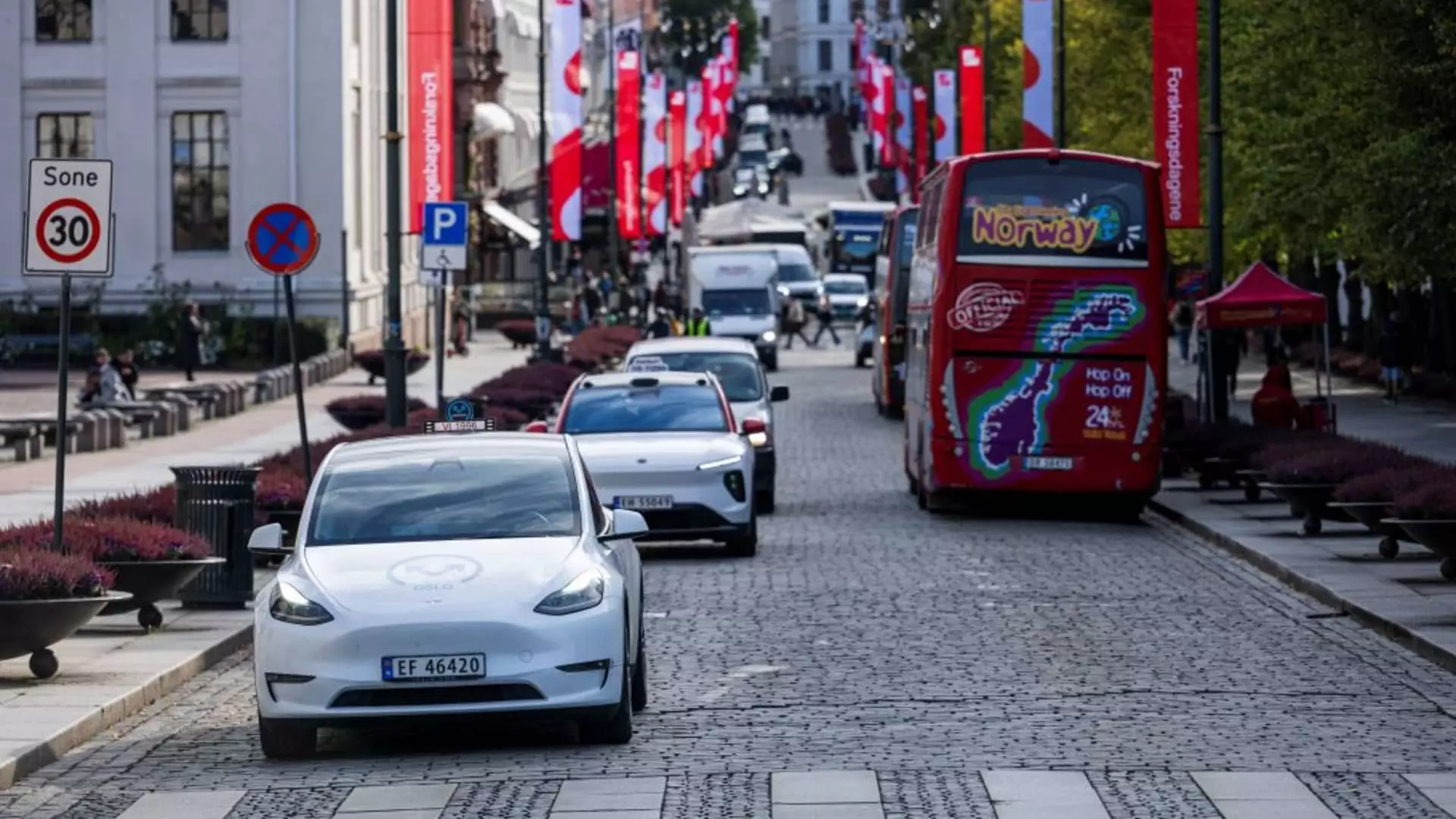Tesla’s share price experienced a notable decline of approximately 5% on a recent Monday, triggered by President Donald Trump’s announcement regarding the introduction of significant tariffs on goods imported from Canada, Mexico, and China. This decision is especially impactful for Tesla, given that a significant portion—around 50%—of its vehicle production takes place in China, a country now subject to these new tariffs. This downturn is indicative of a broader trend in the stock market, where other major players like Apple also experienced losses, although to a lesser extent, with shares falling by over 3%.
The domino effect of these tariffs is expected to reverberate across the automotive industry, complicating supply chains and inflating production costs. Despite Tesla’s global footprint, which includes manufacturing facilities in the United States, Berlin, and Shanghai, resulting in a comparative advantage, the company is not entirely insulated from the repercussions of international trade policies. In a recent earnings call, Tesla’s Chief Financial Officer, Vaibhav Taneja, expressed concern over the potential impact on profitability, asserting that the company’s supply chain, although localized in various markets, still relies heavily on global procurement.
In conjunction with these tariff concerns, Tesla is grappling with a disappointing trend in vehicle registrations across Europe, particularly in significant markets such as France, Sweden, and Norway. Data collected by the French automotive industry organization PFA revealed a staggering 63% drop in Tesla registrations in France during January compared to the same period a year prior. This decline starkly contrasts with the overall performance of electric vehicles and the broader automotive market in France, indicating a troubling trend specifically for Tesla.
Sweden and Norway also reflected stark decreases in Tesla sales, with declines of 44% and 38%, respectively. Such reductions in registrations raise questions about Tesla’s market strategy in Europe, which has been hailed as one of the largest landscapes for electric vehicle adoption. The combination of rising competition from established automakers and new entrants in the EV space could be contributing factors to this downturn.
Alongside the tariff implications and declining sales, Tesla has recently taken steps to adjust its pricing strategy, notably slashing lease costs on its base Model 3 sedan and unpainted steel Cybertruck. This price reduction suggests both a response to mounting sales challenges and an effort to stimulate demand in a tightening market. Independent analyst Troy Teslike has expressed reservations about the future of the Cybertruck, revising his sales forecast down to an expected 21,000 units in 2025. This projection raises alarms about Tesla’s ability to maintain momentum in an evolving electric vehicle market where consumer preferences may be shifting.
Moreover, Teslike noted anecdotal evidence of dwindling demand, claiming that Tesla concluded 2024 with over 10,600 unsold Cybertrucks. The transformation of the target market has seemingly left the backlog drained by an unfortunate combination of excessive production and unimpressive sales figures.
The Political Landscape and Brand Value Shifts
Tesla’s political ties also present an interesting dynamic amidst these financial challenges. Elon Musk, the CEO, has been under scrutiny for his support of Trump’s political campaign, contributing notably to Republican causes, including efforts to see Trump return to the presidency. In an unexpected turn, Musk endorsed Germany’s far-right Alternative for Germany party, further entrenching his presence in politically controversial waters.
The repercussions of these affiliations may extend beyond the electorate; they seem to influence Tesla’s public/image stature. According to consulting firm Brand Finance, Tesla witnessed a staggering 26% drop in brand value in 2024, reflecting a potential dissonance between the company’s growth ambitions and the broader market perception shaped by its leadership decisions.
The road ahead for Tesla looks fraught with challenges, from trade policies impacting supply chain efficiencies to declining registrations and a re-evaluation of brand value amid changing political affiliations. The company’s agility in navigating these headwinds will be crucial in determining its market position in the coming years. As Tesla contends with an intensifying competitive landscape in the electric vehicle sector, strategic adjustments and market responsiveness will be key components of its survival and potential resurgence.

